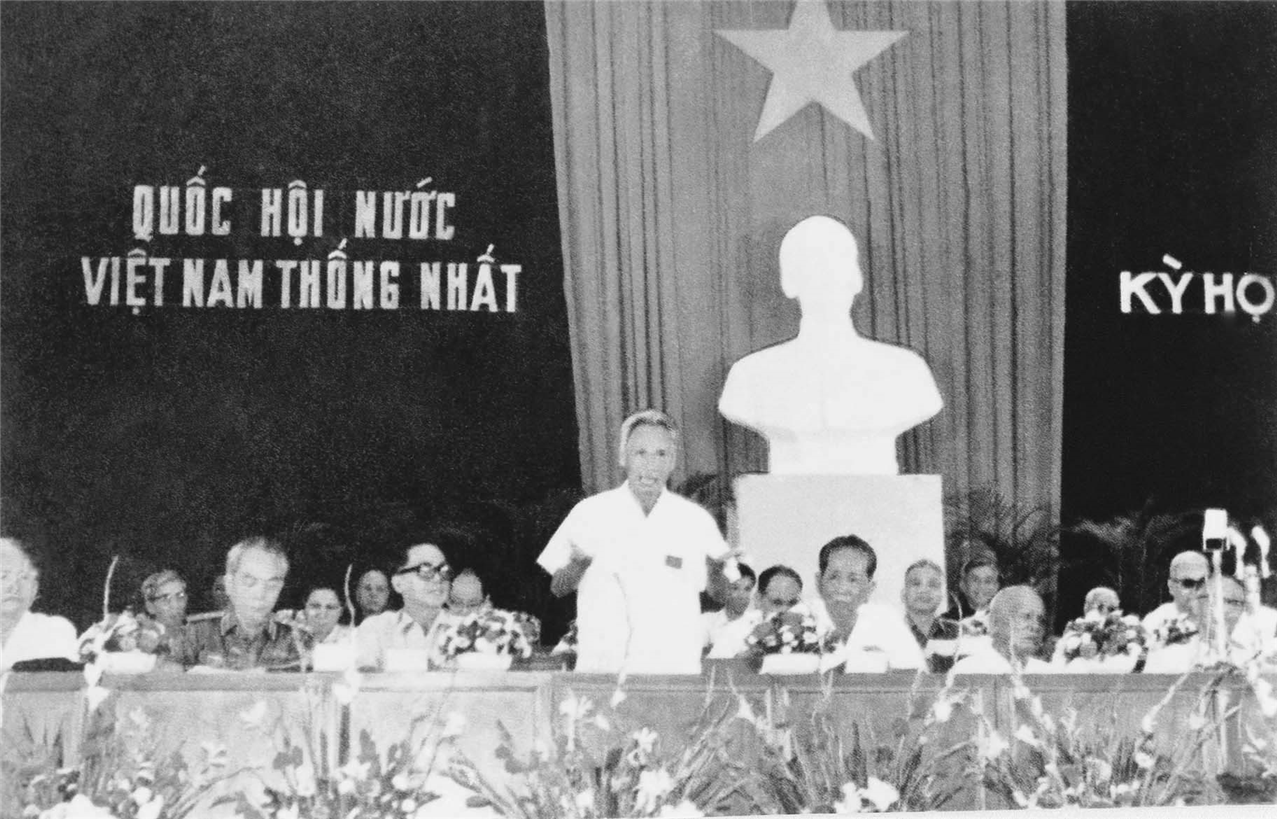
VIETNAM NATIONAL ASSEMBLY WITH 50 YEARS OF NATIONAL UNIFICATION
The glorious journey,
vision of innovation
Dr. Tran Van Khai
Deputy Secretary of the Party Committee, Deputy Chairman of the Committee for Science, Technology and Environment
50 years since the country was reunited, the Vietnamese National Assembly has always accompanied the nation, gathering the will and aspirations of the entire people. It was at the National Assembly forum that strategic decisions were passed, creating a solid foundation to turn a post-war Vietnam into a dynamic, developing nation, confidently moving forward into the new era.
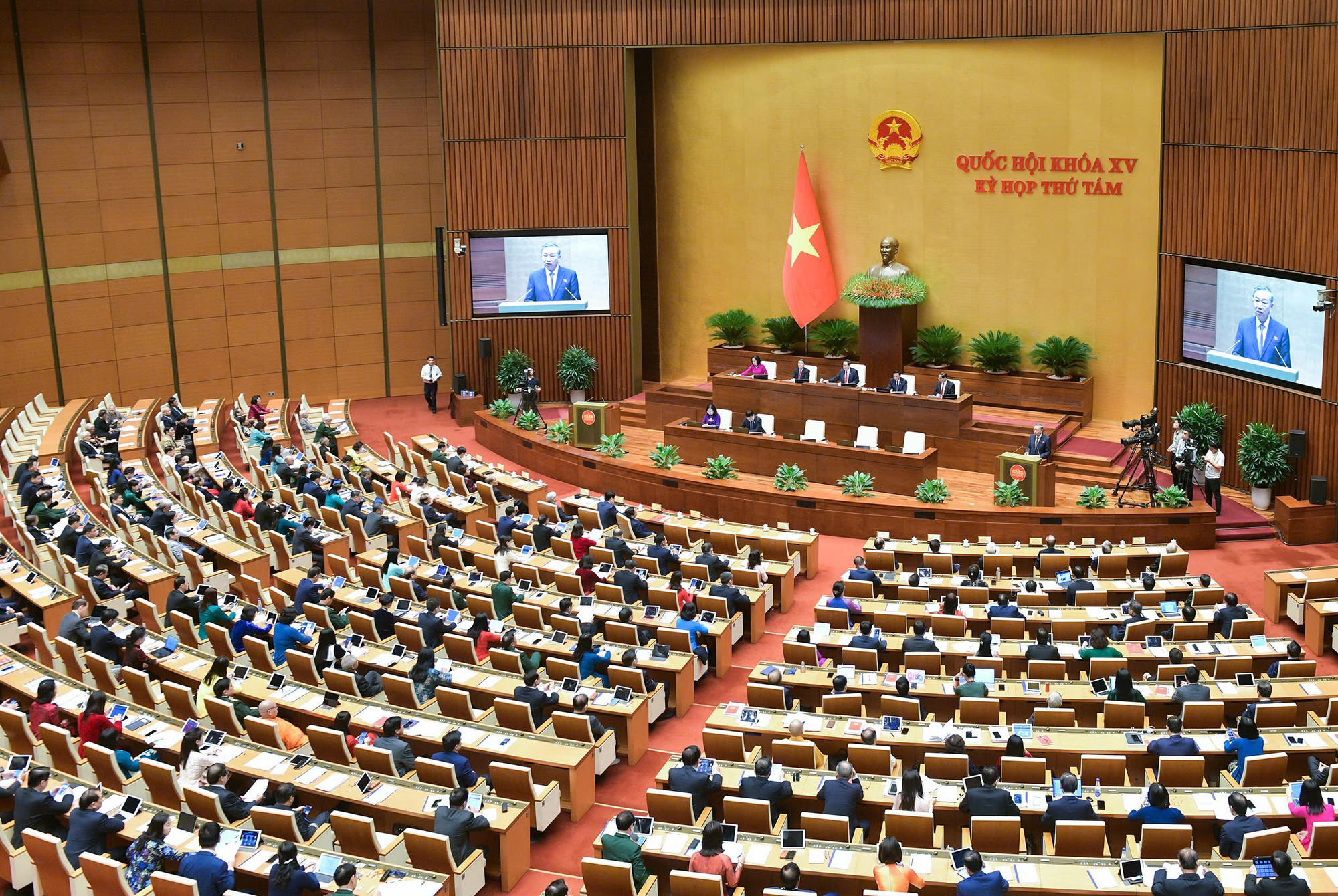
"The world is in a period of epochal change, the country is also standing at the historical door to enter a new era, the era of national growth. The country's burning reality is posing urgent problems that need to be solved, the people are waiting and expecting the decisions of the Party, the State, and the National Assembly.
I request the National Assembly, the agencies of the National Assembly, and the National Assembly deputies to promote the spirit of solidarity, responsibility, innovation, and breakthroughs, to excellently fulfill their responsibilities, to contribute to the solidarity of our entire Party, people, and army, and to strive to soon successfully build a socialist Vietnam on par with the world powers, as the great President Ho Chi Minh wished and the aspiration of the entire nation."
General Secretary To Lam
Symbol of independence, unity and solidarity
On April 25, 1976, nearly a year after the complete liberation of the South, the reunification of the country, and the reunification of the country, more than 23 million voters nationwide went to the polls to elect the National Assembly of the unified Vietnam: the 6th National Assembly. This was an event of special historical significance, marking a new step in the development of the unified, independent, sovereign and territorially intact State of Vietnam.
Over the past 50 years since that historic milestone, our National Assembly has continuously developed, innovated, and improved its operational efficiency, truly becoming a common forum for the people of the whole country, the embodiment of the great national unity bloc from North to South, from the mountains to the plains, from urban to rural areas, regardless of class or religion; the center of legislative reform, a forum of democracy, intelligence, and innovation.
During the period of national construction (1976 - 1986), peace was restored, the country faced numerous difficulties, the material infrastructure was exhausted, the economy was backward, and the people's lives were poor. Shouldering the responsibility of restoring and rebuilding the country, at the First Session of the 6th National Assembly, the National Assembly decided on many important issues: naming the country the Socialist Republic of Vietnam, choosing Hanoi as the capital, and unifying the government and legal system throughout the country.

Next, the National Assembly focused on issuing policies to heal the wounds of war, unify state management nationwide, and reform and develop the economy in a socialist direction. Typically, the 6th National Assembly passed the 1980 Constitution, defining the task of bringing the whole country to socialism under the leadership of the Party. The National Assembly decided on the first 5-year socio-economic plan after unification, focusing on restoring production, improving people's lives, and strengthening national defense and security. Although the country's conditions were still difficult, the National Assembly made efforts to fulfill its important responsibilities and historical mission, creating a legal foundation for great changes in the following decade.
During the period of innovation, integration and creativity from 1986 to present: The historical turning point in 1986 with the Doi Moi policy initiated by the Party breathed new life into all aspects of the country's life. The National Assembly quickly joined in, becoming the spearhead on the front of building a socialist-oriented market economy. The 8th and 9th National Assemblies continuously promulgated and amended many important economic laws to "untie" the productive forces. From the Foreign Investment Law (1987) paving the way to attract international capital, to the laws on private enterprises and companies (1990) restoring people's business rights, and especially the 1992 Constitution creating a legal framework for a multi-sector economy, recognizing the market and the right to freedom of business within the legal framework.
In the 1990s, the National Assembly continued to improve the legal environment for a more extensive Renovation, promulgating the Civil Code, the Labor Code, the Land Law (amended)... to unleash all economic potential. The outstanding achievement at the end of this period was the 1999 Enterprise Law - considered as "a great wind to break the subsidy", helping to remove hundreds of "sub-licenses", creating a breakthrough in the number of non-state enterprises. Thanks to a more open legal framework, the private economic sector gradually revived, contributing increasingly to the national economy.
The National Assembly also strengthened its supervisory function, requiring the executive branch to reform administrative procedures and improve management efficiency, thereby creating positive changes in the investment and business environment, contributing significantly to helping the country escape the economic crisis and enter a period of high growth in the late 20th century.
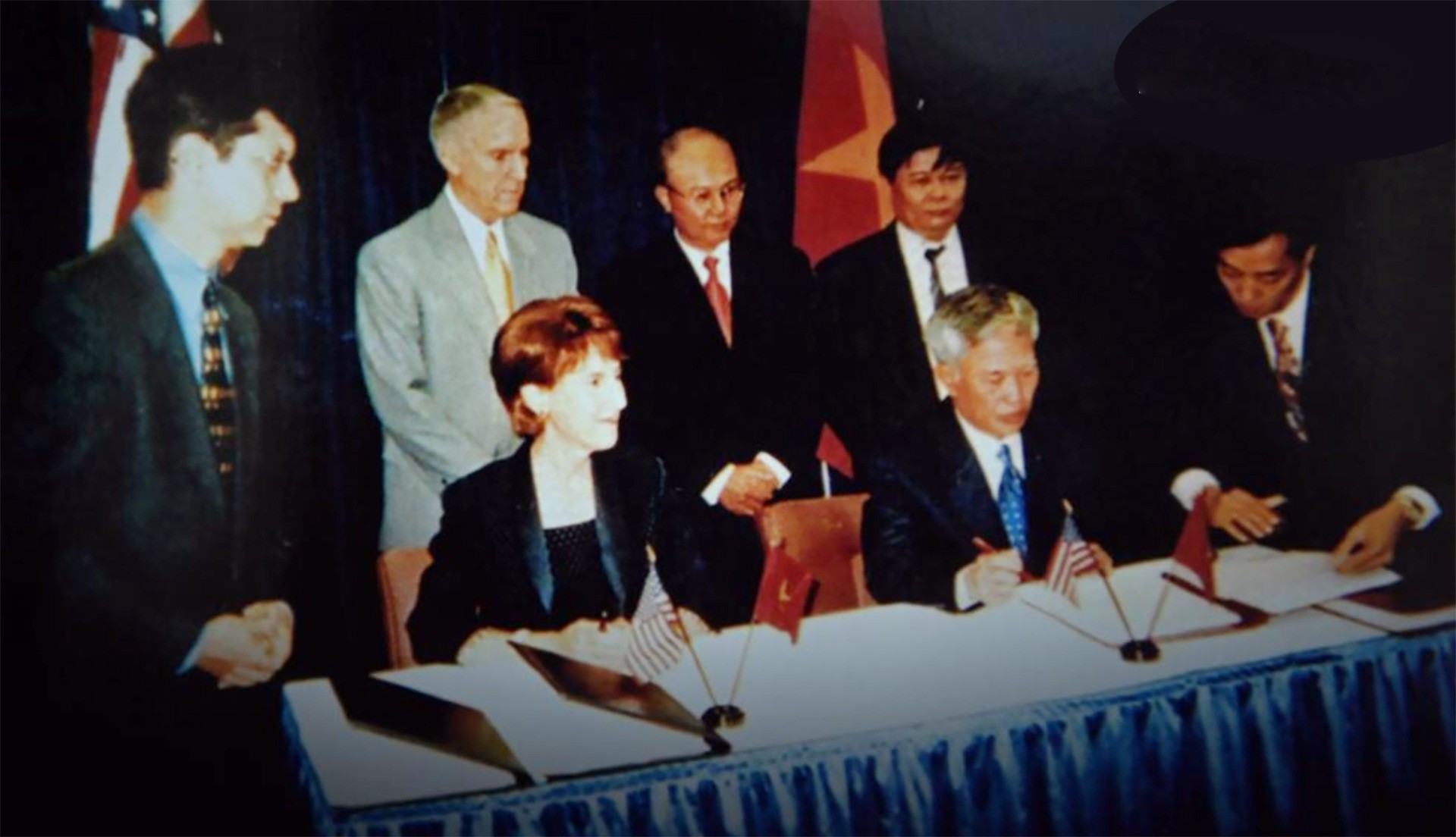
Entering the 21st century, Vietnam has deeply integrated into the global economy with a series of important events: signing the Vietnam - US Trade Agreement (2000), joining the World Trade Organization (2007), participating in new generation free trade agreements (CPTPP, EVFTA, RCEP)...
On that journey, the National Assembly has always been the pioneering force in creating a legal corridor for international integration. The National Assembly of the 11th, 12th and 13th tenures has ratified many important bilateral and multilateral agreements, and at the same time amended the legal system to ensure compliance with international practices. Typically, the 13th National Assembly amended and approved the 2013 Constitution, adding principles of market economy, rule of law, and deep international integration, creating the premise for perfecting the laws on enterprises, investment, trade, criminal law, and litigation... to be compatible with new standards.
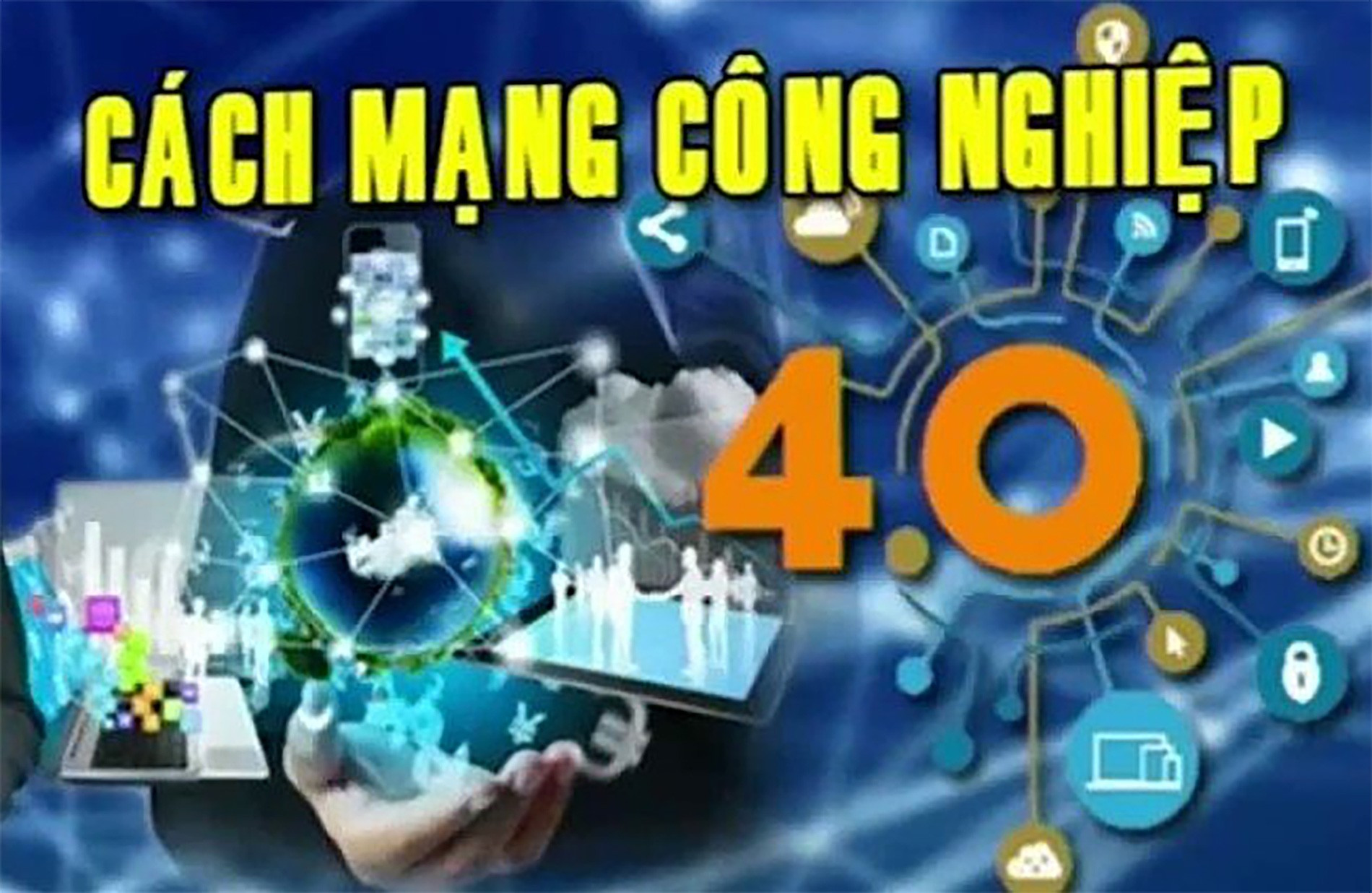
The National Assembly focuses on promoting science, technology and innovation, considering this as the driving force for growth in the era of the Fourth Industrial Revolution. Many specialized laws have been enacted, such as the Law on Science and Technology (2013, revised in 2023), the Law on High Technology, the Law on Technology Transfer, the Law on Cyber Security, etc., to build a legal framework for the digital economy and digital society.
The National Assembly is also stepping up its own modernization, moving towards an e-Parliament model, applying information technology to improve operational efficiency. Never before has the spirit of creativity and innovation permeated the parliament as deeply as it does now - a period when the country is growing strongly, requiring the National Assembly to continue to improve, meeting the people's increasingly high expectations.
Vision to 2045: National Assembly creates institutions, arouses aspirations for strength
In the context that the entire Party and people are urgently implementing the 11th Resolution of the 13th Central Committee, preparing for the 14th National Party Congress and aiming for the goal of national development by 2045, the National Assembly plays a pioneering role in promoting the reform of the state apparatus towards streamlining, effectiveness and efficiency.
Resolution No. 18-NQ/TW of the 6th Central Conference of the 12th tenure (2017) set out a comprehensive policy on restructuring the apparatus and streamlining the payroll. To implement that policy, the National Assembly has amended and supplemented many laws on the organization of the state apparatus, creating a legal basis for merging administrative units, streamlining intermediate levels and reducing focal points. Not only reducing the quantity, the National Assembly also focuses on improving the quality of the contingent of cadres, civil servants and public employees through perfecting regulations on recruitment, assessment, training and use of public personnel.
The National Assembly is also focusing on amending the Constitution and related laws to lay the legal foundation for the establishment of a two-level local government. With its legislative and supreme supervisory role, the National Assembly is and will continue to be the "locomotive" in the reform of the apparatus, ensuring that the state apparatus is compact in size, quantity, and strong in quality to better serve the people.
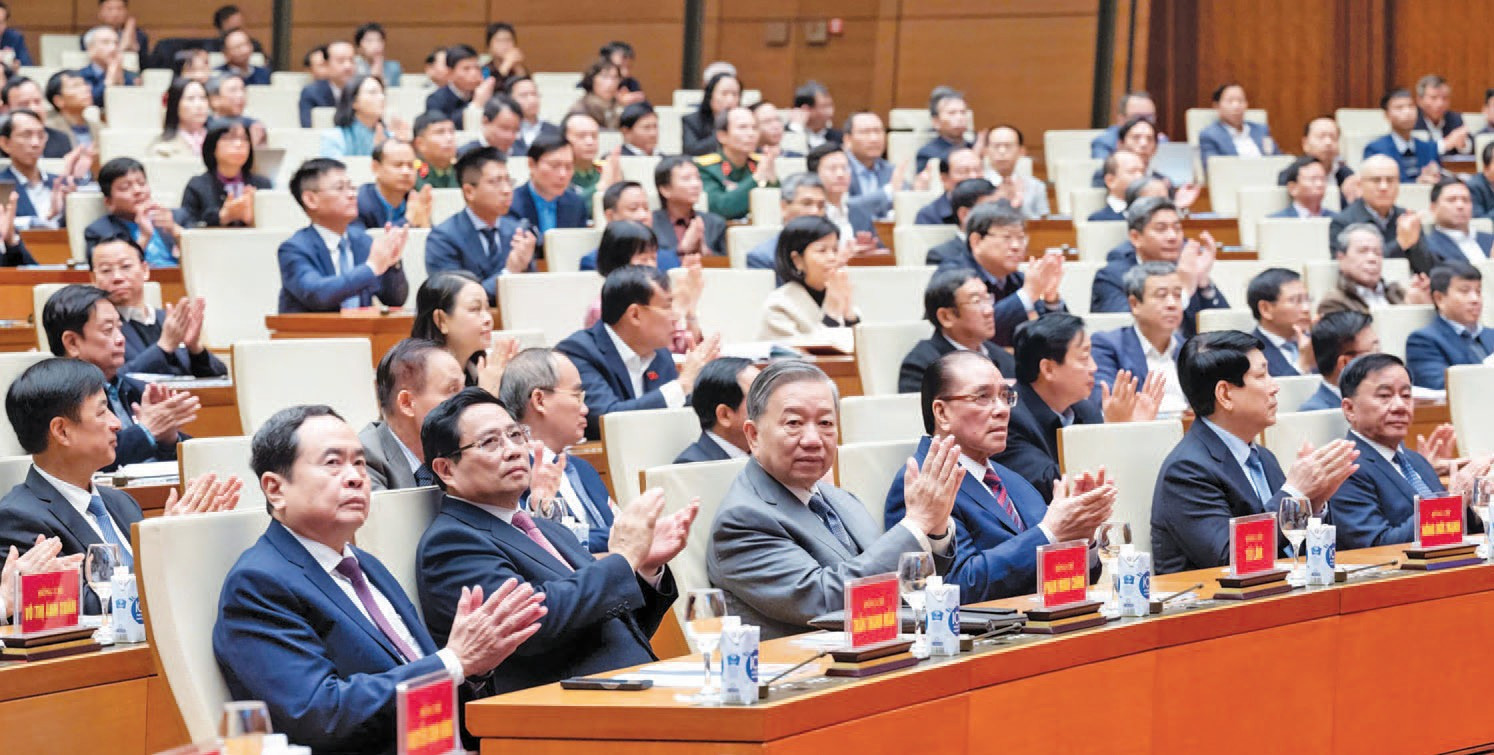
Along with the revolution in organizational apparatus, Vietnam is carrying out a revolution in science, technology and innovation. At the beginning of 2025, the 15th National Assembly passed Resolution No. 193/2025/QH15 to pilot a number of special mechanisms and policies to create breakthroughs in the development of science, technology, innovation and national digital transformation. This is vivid evidence that the National Assembly is always ready to promptly institutionalize the Party's major policies into laws to turn the Party's policies into practical life.
The National Assembly is also urgently completing the legal framework for new technology fields, such as artificial intelligence, big data, digital economy, etc. The supreme supervisory function is promoted to ensure that investment resources for science and technology are implemented for the right purposes and effectively. With the synchronous participation of the entire political system, led by the decisions of the National Assembly, it is certain that the goal of making Vietnam one of the leading countries in innovation in the region is no longer far away.
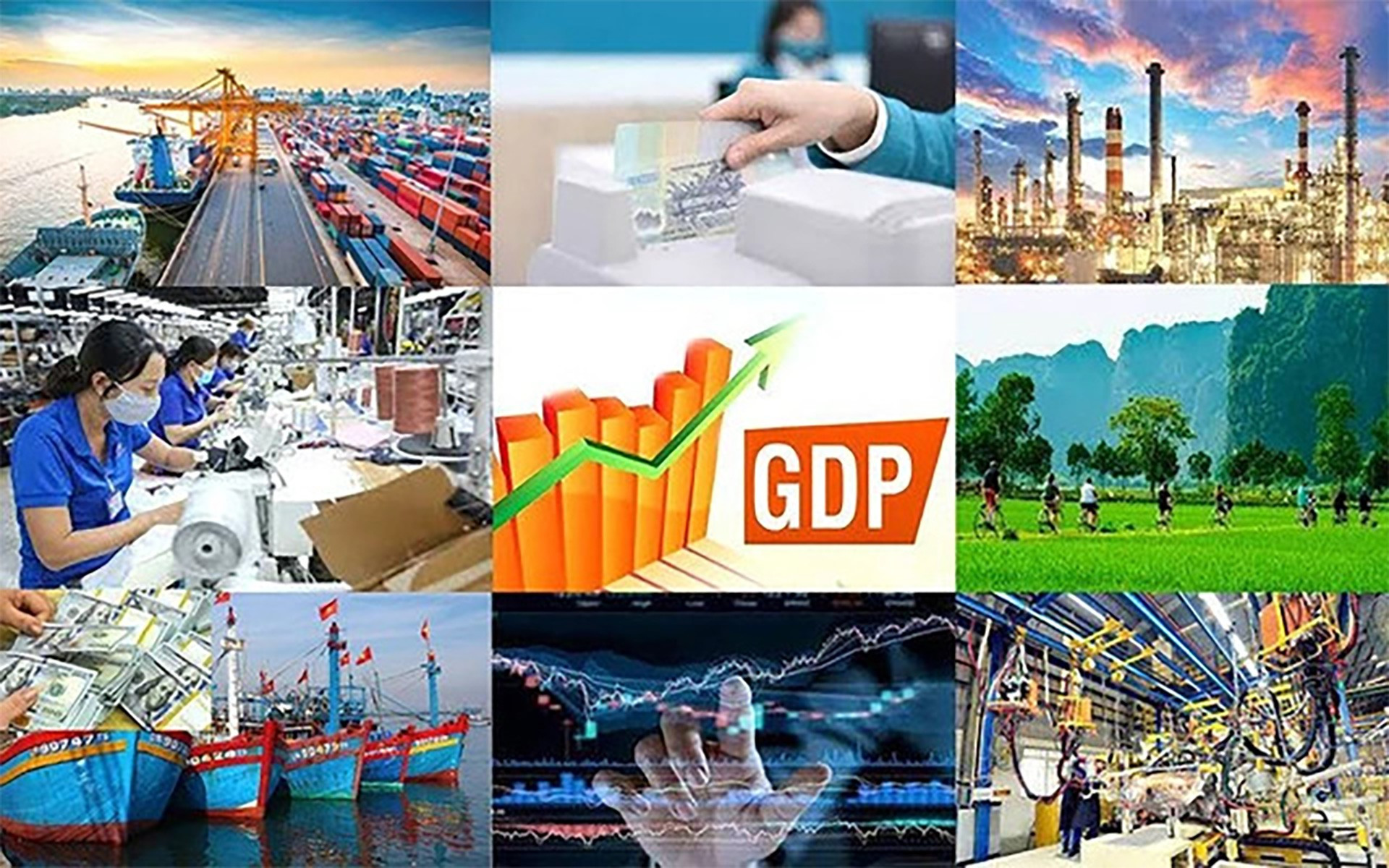
If science and technology are considered the “internal” driving force for the economy to break through, then the private economic sector is the extremely important “external” driving force, the pillar for the economy to stand firm and grow. Continuously in the past terms, institutionalizing the Party’s policies and from the requirements and demands of reality, the National Assembly has amended business laws in a more liberal and open direction: the Enterprise Law, Investment Law, Law on Support for Small and Medium Enterprises, Bankruptcy Law, Securities Law… have been supplemented and improved to protect the freedom of business, property rights, make the market transparent and reduce cumbersome procedures for people and businesses.
The National Assembly also strengthened its supervision of the implementation of business support policies, requiring the Government to further simplify business conditions and cut costs for businesses. The 15th National Assembly paid special attention to perfecting the legal system on intellectual property, technology transfer, competition, public-private partnership, etc., considering these as tools to support private enterprises to innovate and increase added value.
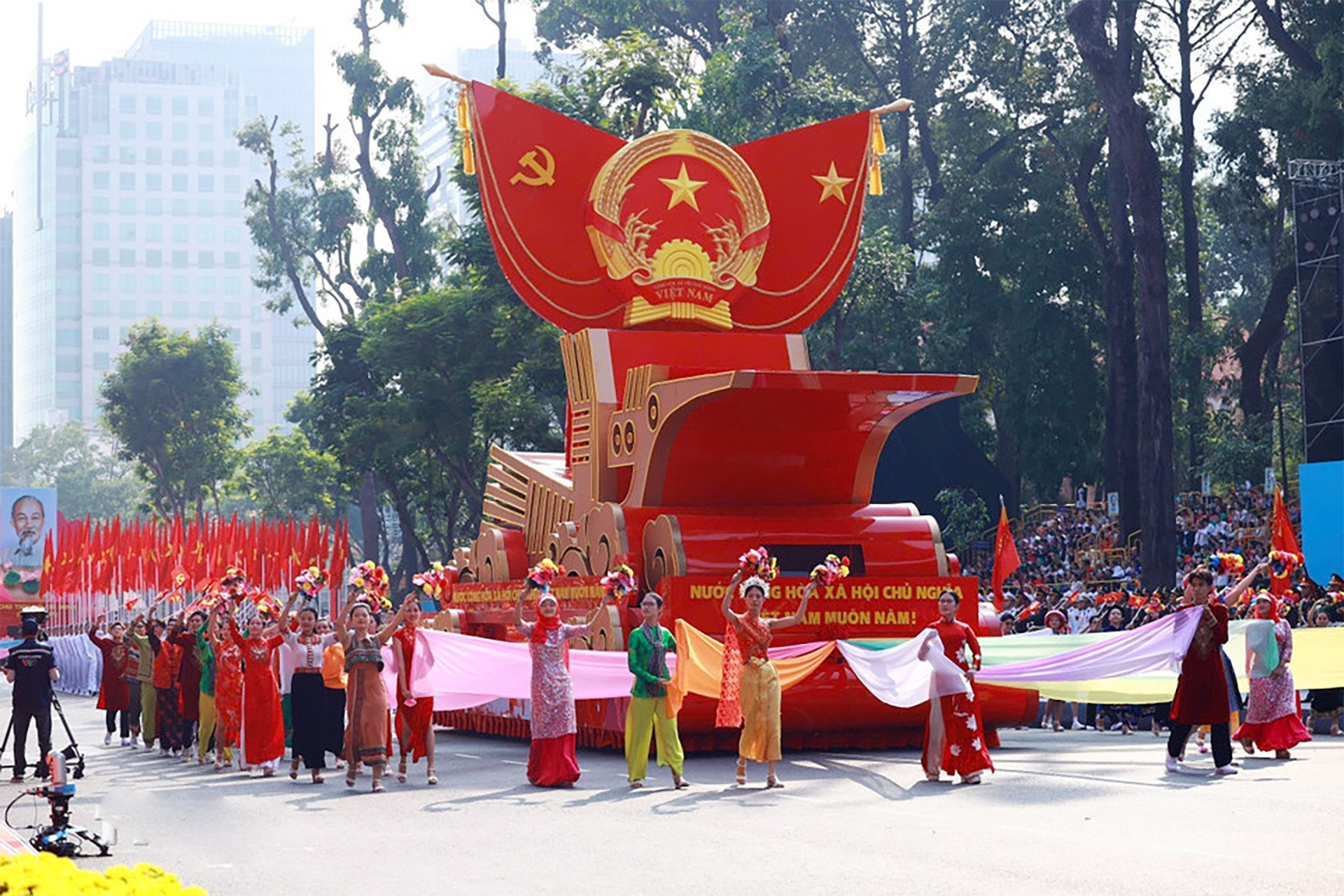
In the context that the Party and State are preparing new, stronger steps to “activate” the great potential of the private economy, the National Assembly is also urgently perfecting the legal system, creating maximum convenience for this important economic sector. With the close support of the National Assembly, the Vietnamese private economic sector is expected to rise to take on a leading role in the economy, becoming the main driving force for growth, creating many jobs and wealth, contributing to building a self-reliant and self-reliant economy.
Half a century has passed since the great victory of the Spring Reunification of the country in 1975, our country has transformed strongly, achieving great achievements in all fields. On that proud journey, the National Assembly has always played the role of a solid pillar of the regime, a reliable support for the people. The imprints over the past 50 years, from creating a legal foundation, deciding on the path of innovation to leading major reforms in the apparatus, science, technology and private economy under the leadership of the Party, all bear the strong role of the National Assembly.
Looking back over the past half century, it can be affirmed that the National Assembly has truly fulfilled its mission as the "common home" of the great national unity bloc, the place where the will for independence, freedom and the aspiration for prosperity and happiness of the people crystallize.
From the first post-war years with countless difficulties to the era of the Industrial Revolution 4.0 today, the National Assembly has always been the flag that gathers the strength of the entire people, standing side by side with the Government to steer the nation-building process under the leadership of our Party. The exciting atmosphere of the victory day of April 30 is being continued by a new spirit in building and defending the Fatherland, with the National Assembly as a solid political support, fueling confidence for the road ahead.
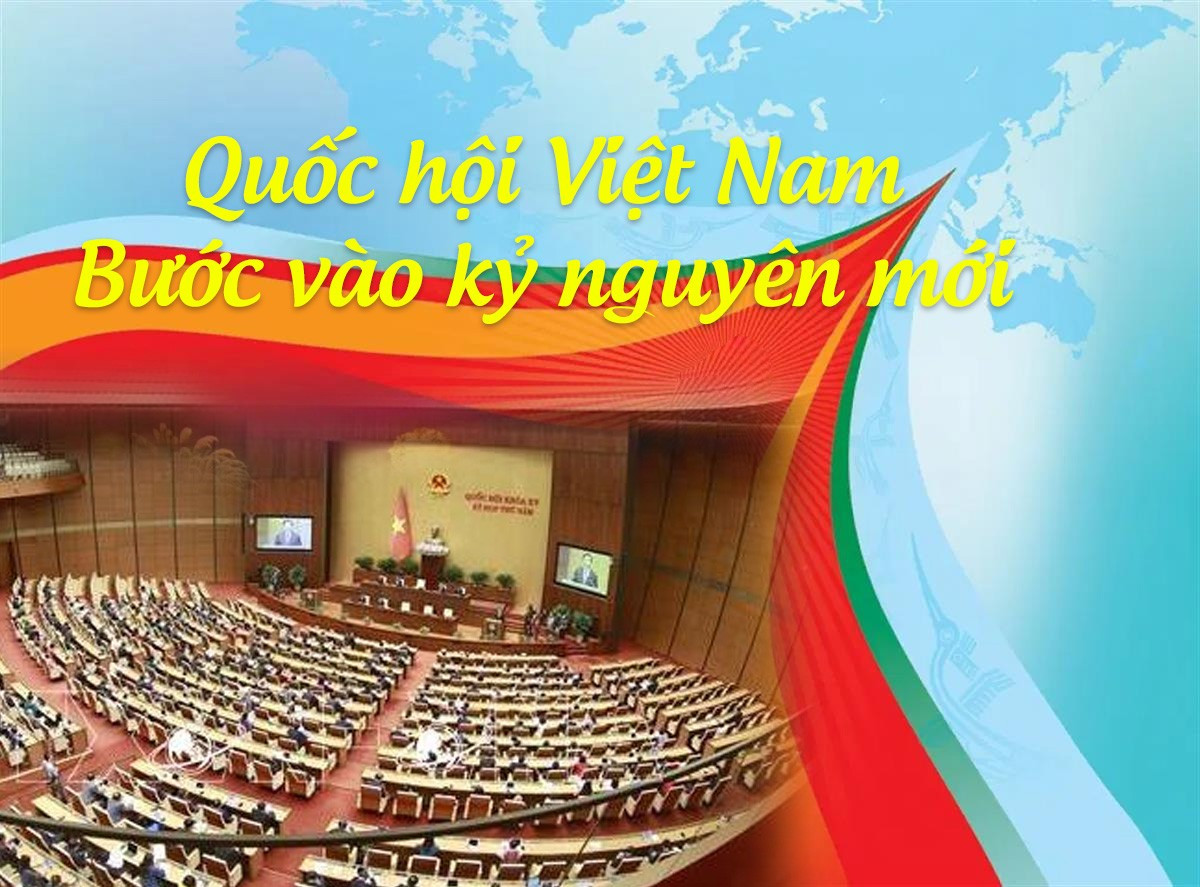
Entering a new era with many intertwined opportunities and challenges, the Vietnamese National Assembly continues to affirm its mettle as a reformed National Assembly that acts for the people. The road ahead requires the National Assembly to constantly improve itself, improve the quality of its representatives, and innovate its methods of operation to be worthy of the great expectations of the people.
Looking back on the past, we have a solid basis to believe that the National Assembly will continue to fulfill its mission of "making history". With the national spirit forged from the great victory of Spring , with the intelligence and will of all delegates and voters nationwide, the Vietnamese National Assembly will certainly firmly steer the legislative "ship", contributing to realizing the aspiration of a strong and prosperous Vietnam by 2045.
Looking at the red flag with yellow star flying over the National Assembly, every Vietnamese citizen has the right to be proud of the supreme elected institution that always devotes itself to the country and the people. Vietnam moves forward, the National Assembly accompanies us - building the future from the solid foundations of today.
Source: https://daibieunhandan.vn/chang-duong-ve-vang-tam-nhin-doi-moi-post411871.html





![[Photo] Binh Thuan organizes many special festivals on the occasion of April 30 and May 1](https://vphoto.vietnam.vn/thumb/1200x675/vietnam/resource/IMAGE/2025/5/1/5180af1d979642468ef6a3a9755d8d51)
![[Photo] Ha Giang: Many key projects under construction during the holiday season](https://vphoto.vietnam.vn/thumb/1200x675/vietnam/resource/IMAGE/2025/5/1/8b8d87a9bd9b4d279bf5c1f71c030dec)
![[Photo] "Lovely" moments on the 30/4 holiday](https://vphoto.vietnam.vn/thumb/1200x675/vietnam/resource/IMAGE/2025/5/1/26d5d698f36b498287397db9e2f9d16c)










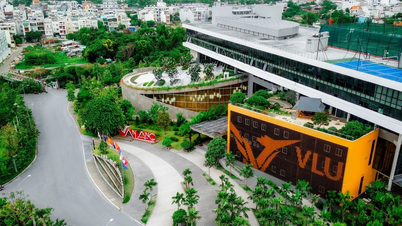

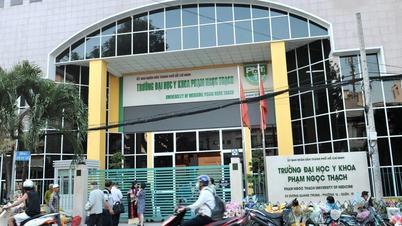


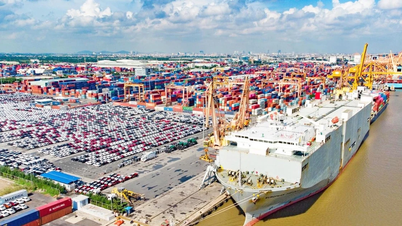


















































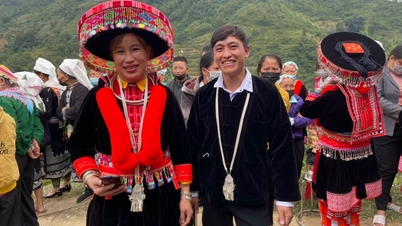




















Comment (0)